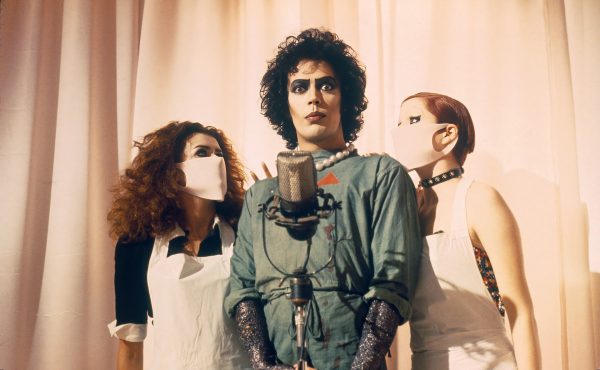Doctor Doctor Gimme The News

a comic panel from Batman and Robin
The controversy revolving around vaccines has been around since their inception. Concerned parents who wish to do right by their children are often approached with this dilemma of whether or not to vaccinate. But far too many questions come into play about these issues that often go unresolved. In a society flooded with information, it’s hard to sift through the dirt to find the truth. Dr. Oren Kupfer, the Assistant Professor of Pediatrics at University of Colorado School of Medicine was kind enough to shed some light on the topic.
Dr. Kupfer first explains the types of vaccines that are distributed.
“There are two main types of vaccines,” he explains. “There are active and there are passive. Active vaccines are injected or given orally, then the patient’s immune system then responds to it; that’s the active part. The patient has to actively participate in creating the immune response that protects it from disease.
Passive vaccines are much less common, they are normally used to protect against respiratory syncytial virus [ed. note: a virus that is a major cause of bronchiolitis and pneumonia in young children.] This is where the antibody is given to the patient and they don’t really have to do anything; they simply receive the immunity.”
The vaccines that we hear about and mostly receive fall into the active category. When enough people are vaccinated against a certain disease, something called “herd immunity” comes into effect amongst the populace. Dr. Kupfer explains herd immunity:
“If you vaccinate enough of the population, aka ‘The Herd,’ then those who are unvaccinated will be protected. This is because the disease will be so uncommon those who aren’t protected have a much lower chance of catching it.”
At first glance this concept gives some leeway for those who want to opt out of vaccinating their children. Perhaps herd immunity could give a bit of wiggle room for some to vaccinate but not all. Dr. Kupfer explains that this way of thinking is flawed.
“It doesn’t give people an excuse not to vaccinate; the herd idea demands that there is in fact a herd large enough to support the population. If you have a small herd then you lose the impact.”
The herd immunity primary function is to protect those who cannot, for medical reasons, be immunized; those who are pregnant, suffering from autoimmune disorders or deathly allergic to the vaccine itself. It also functions as a defense for those who don’t respond to immunizations such as people with immune deficiencies or those with cancers where their immune system isn’t functioning.
“If too many people chose to rely on the herd effect then the herd becomes too small, the effect would be lost and disease could potentially run rampant again,” warns Dr. Oren
Today, there are many arguments as to why people would choose not to receive vaccines. Some popular arguments are that the children being injected cannot handle the chemical load. Dr. Kupfer assures that the Center for Disease Control (the CDC) and other international medical communities have studied very carefully and the schedule that has been set forth by those administrations is specifically set to maximize the effect and minimize the risk, if any.
One of the more popular arguments that claim vaccines can cause autism.
The argument that vaccines cause autism was based off of debunked science; it is simply untrue,” explains Dr. Kupfer. The science that was reported was based off of entirely falsified data. All parties involved have retracted their findings, all except the head doctor, Andrew Wakefield who is now a discredited former British doctor who had lost his license and is no longer allowed to practice medicine in his home country. Mr. Wakefield was a gastroenterologist until he was removed from the UK medical register for unethical behavior, misconduct and fraud.
Whether the choice not to vaccinate is philosophical, religious, or otherwise, the effects of those individuals are now showing up in today’s society.
“We are seeing sporadic outbreaks of vaccine preventable diseases, most notably, influenza” says Dr. Kupfer.
When it comes to the argument that the flu isn’t harmful or that the flu shot isn’t always effective, that statement is only part true. Although studies have shown that the flu vaccine isn’t always 100% effective, those same studies detail that those who are vaccinated and do contract influenza experience a milder case.
“Thousands of people per year in the United States die from the flu and about 80% are unvaccinated,” warns Dr. Kupfer. “That does leave 20% who are immunized, but agreed, if you look at the risk/benefits of getting a flu shot, it reduces your risk four-fold of not dying from influenza.”
So as stated, being vaccinated doesn’t fully protect one from catching the disease they are trying to prevent, but does reduce its severity and duration. When asked about how this translates to illnesses like measles and mumps and why vaccines have been dispatched against them, Dr. Oren Kupfer explains the old way of treatment versus now:
https://drive.google.com/open?id=1ZlqkXLcLJ3BiZJv26B2zPp77KtSNZQwU
When asked about treating diseases such as polio or the new polio-like virus that has been cropping up, Dr. Oren discusses his feelings on preventing diseases like these.
https://drive.google.com/open?id=1CjSYXmLmymORrSGFTYUkoTeufoqIOB0S
With the spread of diseases being such a safety risk and an economic threat, it begs the question of regulations in schools and daycares. Dr. Kupfer explains that it is more common to see schools, daycares and even pediatricians offices not accepting people or patients who are not fully immunized.
“California has a state law that tightens the restrictions of religious exemptions or personal beliefs to admit children to school. Such that you would have to have very clear proof of what your exemption should be in order to be put into school without full immunization,” says Dr. Oren.
He then goes on to explain why exactly pediatricians will not accept antivaxx patients:
https://drive.google.com/open?id=1uLmkeylUDMBdczYjizDP_DnvG14_PjGH
Every parent wants what’s best for their children and every doctor cares about their patients. Along with the relationship formed within the healthcare industry is a caring heart that works towards healthier living. Dr. Oren concludes with a warning about looking for information online.
https://drive.google.com/open?id=1DyIjYYX15wDYynrLR4_9XPi8gYVKN0k3

A veteran to the Arapahoe Pinnacle, editor Dylan Boxer is known for his quick wit and lightheartedness within the publication. When his not writing you can usually find him outside on his long-board or inside working on his next cosplay....












